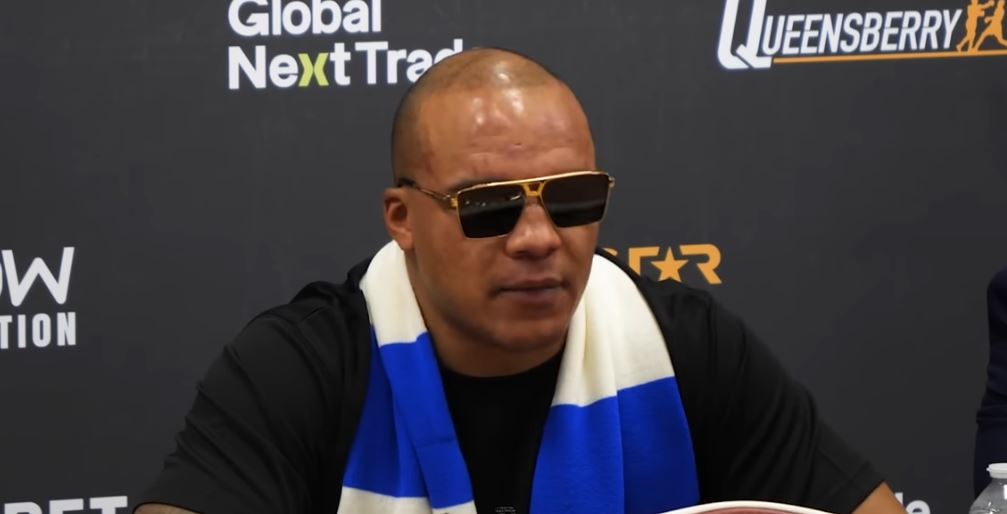
In the electric cauldron of London’s O2 Arena on October 25, 2025, what promised to be a heavyweight thriller between Joseph Parker and Fabio Wardley devolved into a moment of profound frustration. Wardley, the unbeaten British bulldog, clawed his way back from the brink to secure an 11th-round TKO victory, claiming the WBO interim heavyweight title in the process. But let’s cut through the post-fight glow: referee Howard Foster’s decision to halt the bout was a gut punch to boxing’s soul. It was stopped too early, robbing Parker—a battle-tested warrior with a chin forged in championship fires—of the chance to rally, and denying fans the epic climax they deserved. This wasn’t protection; it was interruption.
To understand why this stoppage stinks, rewind to the fight’s architecture. Parker, the 33-year-old Kiwi veteran and former WBO champ, entered as the favorite, wielding his technical savvy like a scalpel. He dominated the early exchanges, outboxing Wardley with crisp combinations and footwork that turned the ring into his personal chessboard. By the middle rounds, the scorecards painted a clear picture: Parker up 6-2, with two even, per broadcast tallies. Wardley, 30 and hungry for his first major strap, absorbed a barrage that would have felled lesser men. His chin held, but his output waned—he was a pressure fighter running on fumes, advancing more on heart than precision.
Then came the 11th, a round that erupted like a powder keg. Wardley, sensing desperation, unloaded a flurry that backed Parker to the ropes. Heavy shots landed, sure, but let’s dissect the chaos: many sailed wide as Wardley, visibly gassed, swung with the wild abandon of a man chasing redemption. Parker, bloodied but unbowed, kept his guard high, slipped punches, and fired back in bursts—defensively responsible, as one observer aptly noted. No knockdown. No collapse. Just a veteran absorbing fire, the kind of grit that’s defined his career from upsets over Deontay Wilder to wars with Anthony Joshua.
Foster stepped in, waving it off amid the frenzy. Wardley’s camp erupted in joy; Parker’s corner seethed. And the boxing world? It splintered into rightful outrage. Ariel Helwani, the voice of combat sports conscience, didn’t mince words: “Absurd stoppage… A fighter of Parker’s caliber deserved WAY more time.” Tony Bellew, a former cruiserweight champ who knows a thing or two about surviving storms, called it “a bad stoppage! At this level… it has to be definitive! That wasn’t!” Echoes rippled across social media: “Ridiculous stoppage… Parker yes he’s tired too but he avoided plenty [and] threw back,” one fan fumed. Another deemed it “terrible,” lamenting how it tainted a potential Fight of the Year.
Why does this matter? Because boxing isn’t just about survival—it’s about the poetry of perseverance. Parker has been to hell and back: dropped in title fights, rising on wobbly legs, only to snatch victory from jaws of defeat. His iron will turned him from journeyman to mandatory challenger. To yank the rug at the first sign of distress ignores that legacy. Wardley landed perhaps four clean connections in that sequence, per close review—hardly the barrage warranting an abrupt end. And with a 12th round looming, who’s to say Parker couldn’t have circled out, clinched, or countered with one of his trademark hooks? Warriors like him don’t quit; they adapt.
Defenders of the stoppage argue it protected Parker from unnecessary damage, pointing to Wardley’s momentum and Parker’s fatigue. Fair enough—refs are human, erring on caution in an era scarred by brain trauma tragedies. But this wasn’t Benny Paret in ’62; it was two elites trading in a phone booth, both exhausted, both elite. A standing eight count, a moment to regroup—any tool short of the full halt—could have preserved the integrity. Instead, we got a decision that feels like home cooking for the local hero, fueling rematch calls and souring what was, until then, a masterpiece of mutual destruction.
Wardley deserves plaudits: his comeback was Herculean, vaulting him to 20-0-1 and a whisper away from Oleksandr Usyk’s orbit. But crowning him on a questionable technicality diminishes the shine. Parker, ever the gentleman, reportedly voiced no complaints post-fight—a class act, as always. Yet silence from the aggrieved doesn’t make it right. This stoppage wasn’t just early; it was emblematic of boxing’s eternal tug-of-war between safety and spectacle.
Demand the rematch. Let these titans clash again, unencumbered by the ref’s premature mercy. Because in the squared circle, true fights aren’t saved—they’re finished on terms dictated by the men inside them. Anything less is a hollow verdict on a night that burned too bright, too briefly.